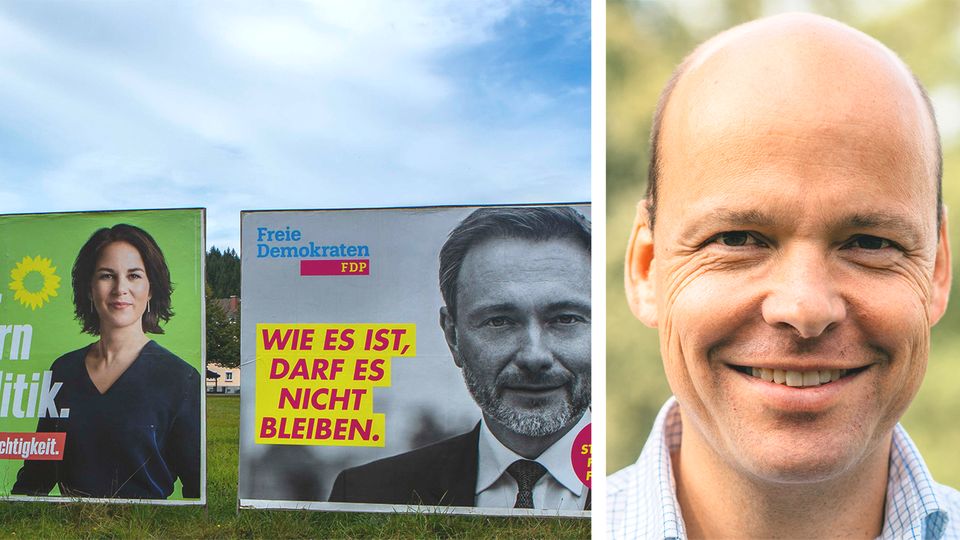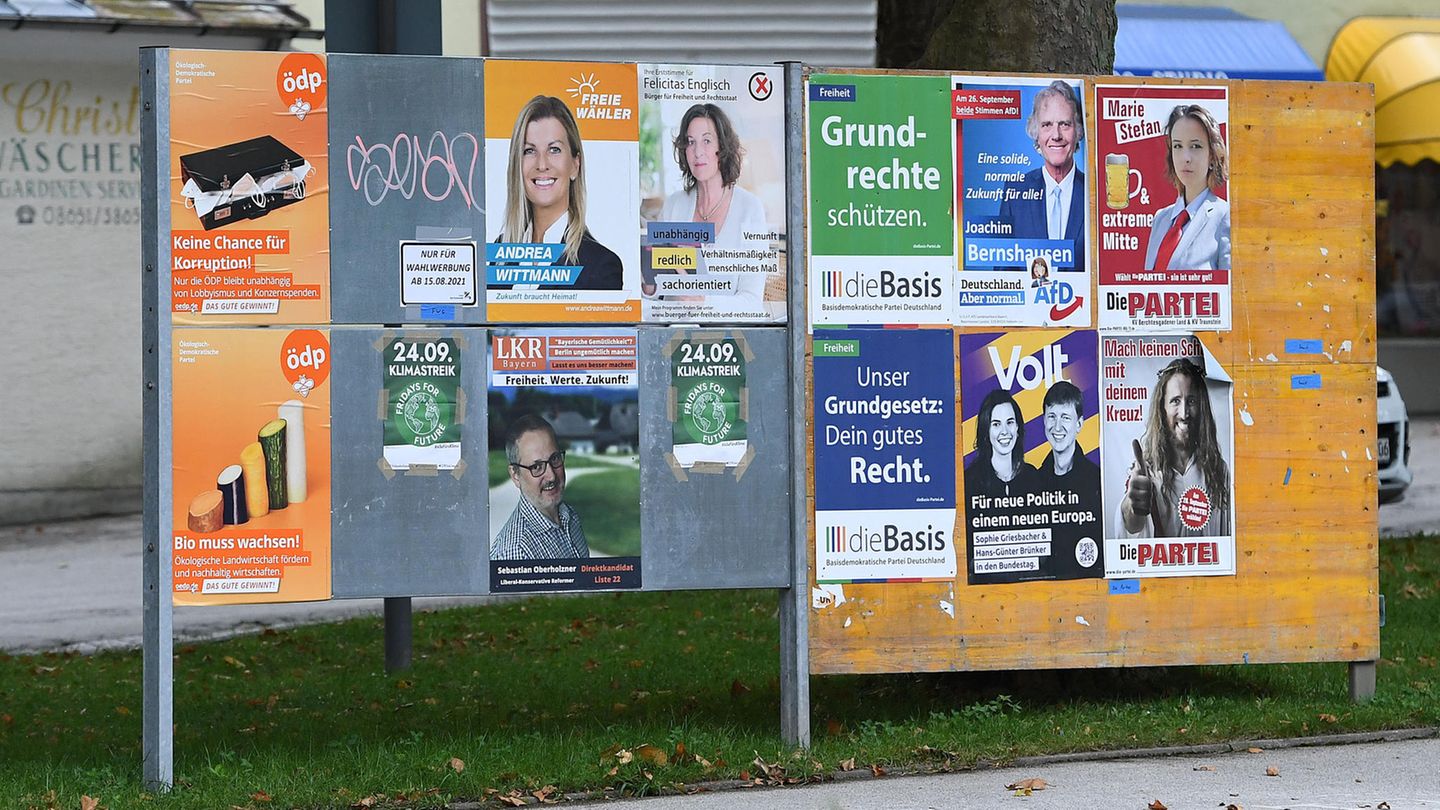In this general election, small parties received an unusually large number of votes. Experts explain this not only with voters turning away from traditional popular parties, they are also observing a changed society with new needs.
By Josefine Kaukemüller
After the federal election, the discussion revolves primarily around the election victory of the SPD, the Union’s debacle and the formation of a coalition. However, if you look at the preliminary election result, it is also clear that the small parties have seen clear growth. The so-called other parties therefore get 8.6 percent of the second votes. In the last federal election in 2017, it was only 5 percent.
According to the preliminary election result, the free voters have the largest share of the vote among the others, at 2.4 percent. This is followed by the Animal Welfare Party (1.5 percent), the Corona protest party Die Basis (1.4), The Party (1.0) and Team Todenhöfer (0.5). Dozens of other small parties, some hundreds of thousands of voters, have given their second vote.
The big parties are losing their attraction
The political scientist Jürgen Falter from the University of Mainz sees the turn to the small parties justified in turning away from the popular parties. Above all, this has to do with a change in society, which has greatly thinned out the typical electorate of the Union and the SPD. “On both sides the root has withered, so to speak,” explains Falter in an interview with the German Press Agency.
Long-term ties to the popular parties have become rarer, and the number of swing voters has risen. Because the Greens have so far not been able to bind the voters so strongly, there is an opportunity for other political forces, says the election researcher.
“We are a highly individualized society”
Political scientist Wolfgang Merkel from the Berlin Social Science Center also explains: “We are a highly individualized society. We were definitely not 30, 40, 50 years ago.” From this it follows that individual options are also demanded in the party market.
Falter sees it similarly, but also makes it clear: The relatively high election result for the others depends above all on the free voters. They are the only ones who currently have slightly greater potential at the federal level. “The others are really small parties that don’t have the slightest chance of overcoming the five percent hurdle.” At the local level, however, there are more often much better results for the small parties.
Little room for newcomer parties
With a view to the performance of the newly founded party Die Basis, which positions itself against the Corona measures in Germany, Falter says: “A newly founded party actually only has one chance to jump the five percent hurdle if it has a concern that is shared by many and that is long-term. ” Here he refers to the successful development of the Greens since the 1980s. The base, on the other hand, is a one-topic party and has little to offer in other policy areas beyond Corona.
Party researcher Merkel does not currently expect any small party to jump over the five percent hurdle. The spectrum of parties last represented in parliament already offers a relatively wide range of political facets – “and that limits the political space for newcomers,” said the expert. He recognizes a clear increase for the others compared to the long past weddings of the people’s parties. He believes that there is still nothing to be said about a “dramatic increase”.
After the election result, none of the most elected small parties will move into the Bundestag. The South Schleswig Voters’ Association (SSW), on the other hand, as a party of national minorities exempted from the five percent hurdle, can send a representative to the Bundestag.

See in the video: The die has been cast, the citizens have voted. But what’s next? What are the lessons from the federal election? Horst von Buttlar, member of the stern editor-in-chief, explains what the results mean for Laschet and Germany’s economy.
David William is a talented author who has made a name for himself in the world of writing. He is a professional author who writes on a wide range of topics, from general interest to opinion news. David is currently working as a writer at 24 hours worlds where he brings his unique perspective and in-depth research to his articles, making them both informative and engaging.




